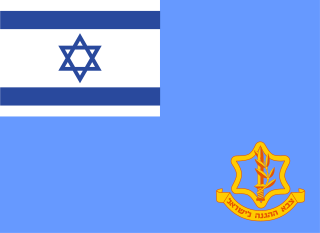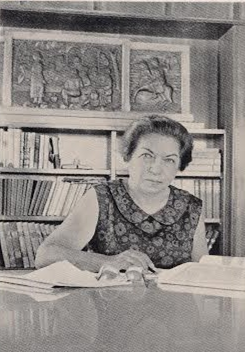Related Research Articles

The Land of Israel, also referred to as the Holy Land or as Palestine, is the birthplace of the Jewish people and Judaism. It is where the Hebrews and Israelites established and developed Israel and Judah, and is also thought to be the region of development for the completed form of the Hebrew Bible; Jews, alongside the Samaritan people, are accredited as ethnic groups originating from the Israelites. Through the influence of Jewish prophets, many of whom were based in the Land of Israel, Jewish traditions came to serve as the basis of the Abrahamic religions. In the 1st century, the Land of Israel also became the birthplace of Christianity, the world's most widespread religion, based on the teachings of Jesus of Nazareth. Throughout the course of human history, the Land of Israel has come under the sway or control of various polities, and as a result, it has historically hosted a wide variety of ethnic groups. In addition to the region's core significance to Judaism and Samaritanism, it is regarded with an especially high degree of holiness in Christianity, Islam, Druzism, the Baháʼí Faith, and a variety of other religious movements whose fundamental theological values trace back to Abraham, a Hebrew patriarch.

Haaretz is an Israeli newspaper. It was founded in 1918, making it the longest running newspaper currently in print in Israel, and is now published in both Hebrew and English in the Berliner format. The English edition is published and sold together with the International New York Times. Both Hebrew and English editions can be read on the internet. In North America, it is published as a weekly newspaper, combining articles from the Friday edition with a roundup from the rest of the week. It is considered Israel's newspaper of record. It is known for its left-wing and liberal stances on domestic and foreign issues.
Gush Emunim was an Israeli ultranationalist Orthodox Jewish right-wing activist movement committed to establishing Jewish settlements in the West Bank, the Gaza Strip, and the Golan Heights. While not formally established as an organization until 1974 in the wake of the Yom Kippur War, Gush Emunim sprang out of the conquests of the Six-Day War in 1967, encouraging Jewish settlement of the land of Israel based on two points, one religious and one practical. The religious point was a belief that, according to the Torah, God wants the Jewish people to live in the land of Israel and had returned lands such as the biblical Judea and Samaria as an opportunity for the Jewish people to return to their ancestral homeland. The second point stemmed from a concern that the pre-1967 borders, a mere 10 km (6.2 mi) wide at its narrowest point, were indefensible, especially in the long term, and it was therefore necessary to ensure that the land captured in the Six-Day War remained under Israeli control by creating a Jewish presence in the region and placing "facts on the ground". While Gush Emunim no longer exists officially, vestiges of its influence remain in Israeli politics and society.
Hilltop, outpost or lot 26, was an illegal outpost, consisting of a mobile home, founded by Netanel Ozeri outside Hebron in the West Bank. It lay approximately 100 metres (330 ft) from the Kiryat Arba settlement, in the Beqa'a valley. At the time of its destruction. Despite court orders, he kept expanding his outpost, refused to bullet-proof the caravan, fence the area he claimed in, or accept protection from the IDF.
The Safsaf massacre took place on 29 October 1948, following the capture of the Palestinian Arab village of Safsaf in the Galilee by the Israel Defense Forces (IDF). The village was defended by the Arab Liberation Army's Second Yarmuk Battalion.

Joseph Vladimirovich (Volfovich) Trumpeldor was an early Zionist activist who helped to organize the Zion Mule Corps and bring Jewish immigrants to Palestine. Trumpeldor died defending the settlement of Tel Hai in 1920 and subsequently became a Jewish national hero. According to a standard account, his last words were "It's nothing, it is good to die for our country", but that he ever said these words has been challenged.
The Arab–Israeli conflict is the result of numerous factors. Reasons cited for the conflict therefore vary from participant to participant and observer to observer. A powerful example of this divide can be Palestinians and Israelis. In a March, 2005 poll 63% of the Israelis blamed the failure of the Oslo Peace Process on Palestinian violence, but only 5% of the Palestinians agreed. 54% of Palestinians put the blame on continuing Israeli settlement activity, but only 20% of the Israelis agreed. It is therefore difficult to develop a single, objective reason for the conflict, so this article will present some of the arguments made by each side, in turn.

Nakam was a paramilitary organization of about fifty Holocaust survivors who, after 1945, sought revenge for the murder of six million Jews during the Holocaust. Led by Abba Kovner, the group sought to kill six million German people in a form of indiscriminate revenge, "a nation for a nation". Kovner went to Mandatory Palestine in order to secure large quantities of poison for poisoning water mains to kill large numbers of Germans. His followers infiltrated the water system of Nuremberg. However, Kovner was arrested upon arrival in the British zone of occupied Germany and had to throw the poison overboard.
Zionism as an organized movement is generally considered to have been founded by Theodor Herzl in 1897. However, the history of Zionism began earlier and is related to Judaism and Jewish history. The Hovevei Zion, or the Lovers of Zion, were responsible for the creation of 20 new Jewish towns in Palestine between 1870 and 1897.

Akiva Eldar is a political analyst, author and contributor to Israeli daily Haaretz. He was chief political columnist, editorial writer and US Bureau Chief for the paper, where he worked for 35 years. His final column in English for the paper appeared on 13 November 2012. He also wrote columns for the Japanese daily Mainichi Shimbun, lectured in communications at Tel Aviv University's School of Journalism and worked as a consultant for PBS television.

"A land without a people for a people without a land" is a widely cited phrase associated with the movement to establish a Jewish homeland in Palestine during the 19th and 20th centuries. Its historicity and significance are a matter of contention.
Lords of the Land: The War for Israel's Settlements in the Occupied Territories, 1967-2007 by Idith Zertal and Akiva Eldar (ISBN 1-5685-8370-2) is a book explaining how Israel is changing the current demographic formula at the occupied territories through building more settlements on the lands of the occupied territories and forcing Palestinians to move away. It was first published in Hebrew by Dvir publishing house, Israel, 2005 as אדוני הארץ : המתנחלים ומדינת ישראל,? 1967-2004 / Adone ha-arets : ha-mitnaḥalim u-medinat Yiśraʼel, 1967-2004 It was and translated into English by Vivian Eden, and published by The Nation Books, and reviewed in the New York Review of Books, the New York Times, and the London Review of Books It is held in over 400 libraries, according to WorldCat.
The Other Side: the Secret Relationship Between Nazism and Zionism is a book by Mahmoud Abbas, published in 1984 in Arabic. It was re-published in 2011. It is based on his CandSc thesis, completed in 1982 at Patrice Lumumba University under the title The Connection between the Nazis and the Leaders of the Zionist Movement, and defended at the Institute of Oriental Studies of the Soviet Academy of Sciences. The central thesis of the book is that the Zionist movement and its leaders were "fundamental partners" of the Nazis and equally responsible for the Holocaust.

Events in the year 1945 in the British Mandate of Palestine.
Racism in the Palestinian territories encompasses all forms and manifestations of racism experienced in the Palestinian Territories, of the West Bank, Gaza, and East Jerusalem, irrespective of the religion, colour, creed, or ethnic origin of the perpetrator and victim, or their citizenship, residency, or visitor status. It may refer to Jewish settler attitudes regarding Palestinians as well as Palestinian attitudes to Jews and the settlement enterprise undertaken in their name.

The Battle of Tel Hai was fought on 1 March 1920 between Arab irregulars and a Jewish defensive paramilitary force protecting the village of Tel Hai in Northern Galilee. In the course of the event, a Shiite Arab militia, accompanied by Bedouin from a nearby village, attacked the Jewish agricultural locality of Tel Hai. In the aftermath of the battle eight Jews and five Arabs were killed. Joseph Trumpeldor, the commander of Jewish defenders of Tel Hai, was shot in the hand and stomach, and died while being evacuated to Kfar Giladi that evening. Tel Hai was eventually abandoned by the Jews and burned by the Arab militia.
The New Historians are a loosely defined group of Israeli historians who have challenged traditional versions of Israeli history, including Israel's role in the 1948 Palestinian exodus and Arab willingness to discuss peace. The term was coined in 1988 by Benny Morris, one of the leading New Historians. According to Ethan Bronner of The New York Times, the New Historians have sought to advance the peace process in the region.

The Israeli Military Governorate was a military governance system established following the Six-Day War in June 1967, in order to govern the civilian population of the West Bank, the Gaza Strip, the Sinai Peninsula and the Western part of Golan Heights. The governance was based on the Fourth Geneva Convention, which provides guidelines for military rule in occupied areas. East Jerusalem was the only exception from this order, and it was added to Jerusalem municipal area as early as 1967, and extending Israeli law to the area effectively annexing it in 1980. During this period, the UN and many sources referred to the military governed areas as Occupied Arab Territories.
The Holocaust has been compared to the Nakba. The appropriateness and nature of this comparison is widely debated.

Bracha Habas was an Israeli journalist, literary editor and writer. She is being considered as “one of the first professional women journalists in Israel.”
References
- ↑ "Idith Zertal" . Retrieved 30 May 2019.
- ↑ Idith Zertal @ Fresh Fiction
- ↑ LeBor, Adam (2007-10-14). "Over the Line". The New York Times. ISSN 0362-4331 . Retrieved 2022-02-20.
- ↑ ""סירוב" של עדית זרטל: מדריך לסרבן המצפון, שיוצא באיחור של 20 שנה". הארץ (in Hebrew). Retrieved 2022-02-20.
- ↑ "Israeli petition supporting EU guidelines on funding of Israeli entities". European Coordination of Committees and Associations for Palestine. 2013-09-16. Retrieved 2022-02-20.
- ↑ LeBor, Adam (14 October 2007). "Lords of the Land - Idith Zertal and Akiva Eldar - Books - Review". The New York Times. Retrieved 30 May 2019.
- ↑ Brown, L. Carl (28 January 2009). "Lords of the Land: The War Over Israel's Settlements in the Occupied Territories, 1967-2007". Foreign Affairs . Retrieved 30 May 2019.